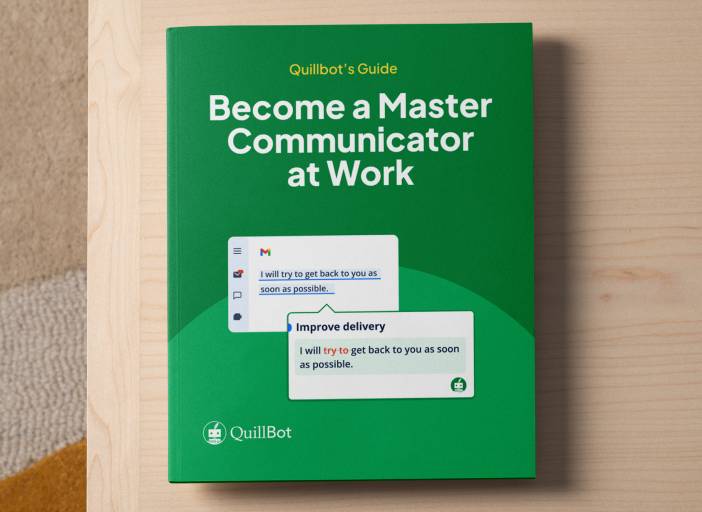50+ Ways to Say Goodbye in English
There are over 50 ways to say goodbye in English, including “bye,” “farewell,” and “until next time.” Although “goodbye” works in any situation, the synonyms for “goodbye” are used in specific contexts. For example, you might say “catch you later” when you’re done hanging out with friends and “thank you for your time” at the end of a business meeting.
The tips and examples below show how to say goodbye in different situations.
Bye, Guillermo! Thank you for stopping by today.
Goodbye, everyone. I’ll see you on Monday.
Well, that’s a wrap! It’s time for me to go home.
Informal ways of saying goodbye
These are the most common ways to say goodbye in casual situations or with people you know very well.
- Bye: Short for “goodbye” but much more common
- Bye-bye: A cute way to say goodbye to small children or very close friends
- Bye now: A softer version of “bye” common in the US South and Midwest
- Bye for now: For when you’ll see them again soon
- OK bye: A snarky, abrupt, or playful way to end a conversation that’s sometimes shortened to “K bye!”
- Good night: A goodbye for right before someone goes to sleep
- Until next time: A common goodbye for people you see on a regular basis
- See you then: For the end of a conversation about an upcoming event
- Until then: For when you’ll see or talk to the person at a scheduled time in the future
- See you tomorrow: For when you’ll see the person on the next day
- See you, see ya, or see you later: Very informal goodbye for someone you see often
- Catch you later: A very casual way to say “I will see you later”
- Later: Another very informal version of “see you later”
- Have a good one: A casual alternative to “have a good day,” “have a good evening,” etc.
- So long: Very informal goodbye expression that was more common in the 1900s
- Take care: A short version of “take care of yourself” that’s common in get well soon messages or anytime you care about the person’s health and happiness
- Take it easy: A more casual version of “take care” for someone who needs or enjoys relaxation and downtime
- Good seeing you: A short version of “It was good to see you”
- Keep in touch: A casual way to encourage the person to call or visit you again soon
- Don’t be a stranger: An assertive but playful way to encourage someone to call or visit you more often
- I’m out/I’m off: An extremely casual way to say that you’re leaving (e.g., “Bye, everyone! I’m out!)
- That’s a wrap: A slang expression from old film studios (when they would wrap the rolls of film) that means “this event/meeting/conversation is now over”
- Drive safe: A polite “goodbye” for when someone is about to drive somewhere; commonly used at the end of parties or before road trips
- Get home safe: A polite farewell for when someone’s going home; an alternative to “drive safe” if someone’s walking, riding the bus, etc.
- Safe travels: A casual way to tell someone to have a safe journey for a work trip, vacation, etc.
- Ta-ta: A casual farewell in UK English that people use in the US and other English-speaking countries
- Cheerio: Another casual goodbye that’s common in the UK
Bye, everyone. That was a fun game night! Until next time!
Text abbreviations for saying goodbye
When you’re saying goodbye over text with a close friend, you might use these acronyms:
- TTFN: Ta-ta for now
- TTYL: Talk to you later
- SYS: See you soon
- BRB: Be right back
- G2G: [I’ve] got to go
Funny ways to say goodbye
These funny goodbye sayings are common among close friends and other very informal situations, such as video game chats.
- Peace out: A very friendly and relaxed version of “goodbye”
- Bye, Felicia!: A pop culture meme from the 1995 film Friday that’s common with close friends or online forums (in which case it can be a form of trolling)
- Ciao for now: A fun rhyme that uses the Italian word for “goodbye”
- Happy trails: The title of a 1950s western song and a very casual version of “safe travels” or “take care”
- Catch you on the flip side: A very informal goodbye for someone you’ll see again soon and a reference to the “B” side of a vinyl record
- Hasta la vista, baby: A reference to Terminator 2: Judgment Day that includes one of the ways to say goodbye in Spanish
- It’s been real: A form of sarcasm at the end of a challenging event (e.g., “Well it’s been real! Hopefully our next campout won’t be this rainy”)
- Smell ya’ later: An extremely silly version of “see you later” and one of Bart Simpson’s catchphrases
- See ya’ later, alligator: A playful rhyme that people sometimes reply with “after a while, crocodile”
- Later, tater: A rhyme that uses a slang word for “potato”
- I’m going to make like a tree and leave: A play on the word “leave,” which can be part of a tree or a verb that means “to depart”
- You don’t have to go home, but you can’t stay here: A funny way to tell everyone that the party’s over or the bar’s closed
How to say goodbye in formal situations
“Goodbye” is the most common way to end a formal conversation, such as a job interview or a business meeting. But there are many other ways to say goodbye in formal situations. Use these “goodbye” expressions with clients, managers, instructors, and other formal contacts. They’re also appropriate for friends and family.
| Goodbye synonyms | Examples |
|---|---|
| It was great to connect with you: A polite way to say “goodbye” to someone you just met or don’t see often | Thank you for meeting with me on Zoom today. It was great to connect with you. |
| Let’s keep in touch: Shows the other person that you hope to talk again soon | Thank you for sending me your resume, Donna. Let’s keep in touch. |
| Have a nice day: A polite way to end a morning conversation | I enjoyed your class today, Professor Kleo. Have a nice day! |
| Have a great day: An enthusiastic way to end a morning event or conversation | Thank you for your purchase, and have a great day! |
| Have a great rest of your day: A cheerful goodbye message for the afternoon (e.g., 2 p.m.) | Thank you for meeting with me, and have a great rest of your day. |
| Have a great week: A friendly goodbye wish for a Sunday or Monday | This concludes our Monday meeting. Have a great week, everyone. |
| Have a great rest of your week: A nice goodbye for the middle of the week | Thank you all for attending the Wednesday workshop. Have a great rest of your week. |
| Have a nice evening: A farewell wish to use between 3 p.m. and 8 p.m. | I’m finished with my work for the day, so I’m signing off. Have a nice evening. |
| Have a good night: For after 5 p.m. and only if the person will be awake for at least a couple more hours | Thank you for joining me for dinner. I hope you have a good night. |
| Have a good weekend: For the last day of the workweek (i.e., Friday) | Thank you for your help this week, Mario. Have a good weekend. |
| Have a safe trip: For someone who is about to travel | Goodbye, Jan, and good luck at the conference tomorrow. Have a safe trip. |
| Thank you for your time: Very formal and polite farewell for business meetings | Please let me know if you have any questions about these insurance quotes. Thank you for your time. |
| I look forward to our next meeting: Another formal farewell for business meetings | That was a fascinating presentation today, Kylie. I look forward to our next meeting. |
| It was nice to meet you: A polite way to tell someone you just met “goodbye” | I enjoyed our interview today, and it was nice to meet you. |
| It was nice seeing you: An endearing way to say “goodbye” to someone you know well | Goodbye, Amanda. It was nice to see you. |
| Farewell: Very formal and old-fashioned; sometimes used for permanent departures | Farewell, and best wishes in your future endeavors. |
- You can say “farewell” instead of “goodbye.”
- “Farewell” is also a noun that means “a way of saying goodbye” (e.g., “We said our farewells and drove home”).
- It can be an adjective that modifies a noun. For example, a farewell party is the same thing as a going-away party.
If you’re curious about other English words, ask QuillBot’s free AI Chat.
Ways to say goodbye in formal writing
In formal emails and letters, it’s customary to sign off with one of these formal goodbyes.
- Best regards
- Kind regards
- Warm regards
- Sincerely
- Sincerely yours
- Yours truly
- All the best
- Best wishes
For example, you should always end a cover letter with one of these sign-offs and your full name.
Frequently asked questions about ways to say goodbye
- How do I say goodbye in German?
-
You can say goodbye in German in these ways:
- Tschüss: The most common and informal goodbye in German
- Auf Wiedersehen: The formal and polite German farewell
- Bis spӓter: German for “see you later”
QuillBot’s free AI Chat can give you quick and reliable details about ways to say goodbye in different languages.
- Is it goodbye or good bye?
-
It is goodbye (one word) not good bye (two words). “Goodbye” is a closed compound word, which means there is no space or hyphen between “good” and “bye.”
QuillBot’s free Grammar Checker can help you write different ways to say goodbye correctly.
- How do you spell bye?
-
Spell bye with the three letters “b-y-e” when you’re using a short version of “goodbye” (e.g., “bye for now.”). The word “by” with two letters is a preposition (e.g., “the photograph was taken by my grandfather”).
With the QuillBot Grammar Checker, you can say goodbye to spelling errors and use the different ways to say goodbye correctly every time.
- What are 5 ways to say goodbye in French?
-
Five ways to say goodbye in French are:
- Au revoir: Appropriate for formal or casual situations and relationships
- Salut: An informal goodbye for friends and family (similar to “bye”)
- À bientôt: An informal goodbye expression that means “see you soon”
- À plus tard: A casual way to say goodbye that means “see you later”
- Bonne journée: French for “have a nice day”
QuillBot’s free AI Chat can show you even more ways to say goodbye in French.
Cite this Quillbot article
We encourage the use of reliable sources in all types of writing. You can copy and paste the citation or click the "Cite this article" button to automatically add it to our free Citation Generator.
Routh, N. (2025, July 23). 50+ Ways to Say Goodbye in English. Quillbot. Retrieved August 11, 2025, from http://qbot.seotoolbuy.com/blog/wishes-and-expressions/ways-to-say-goodbye/

